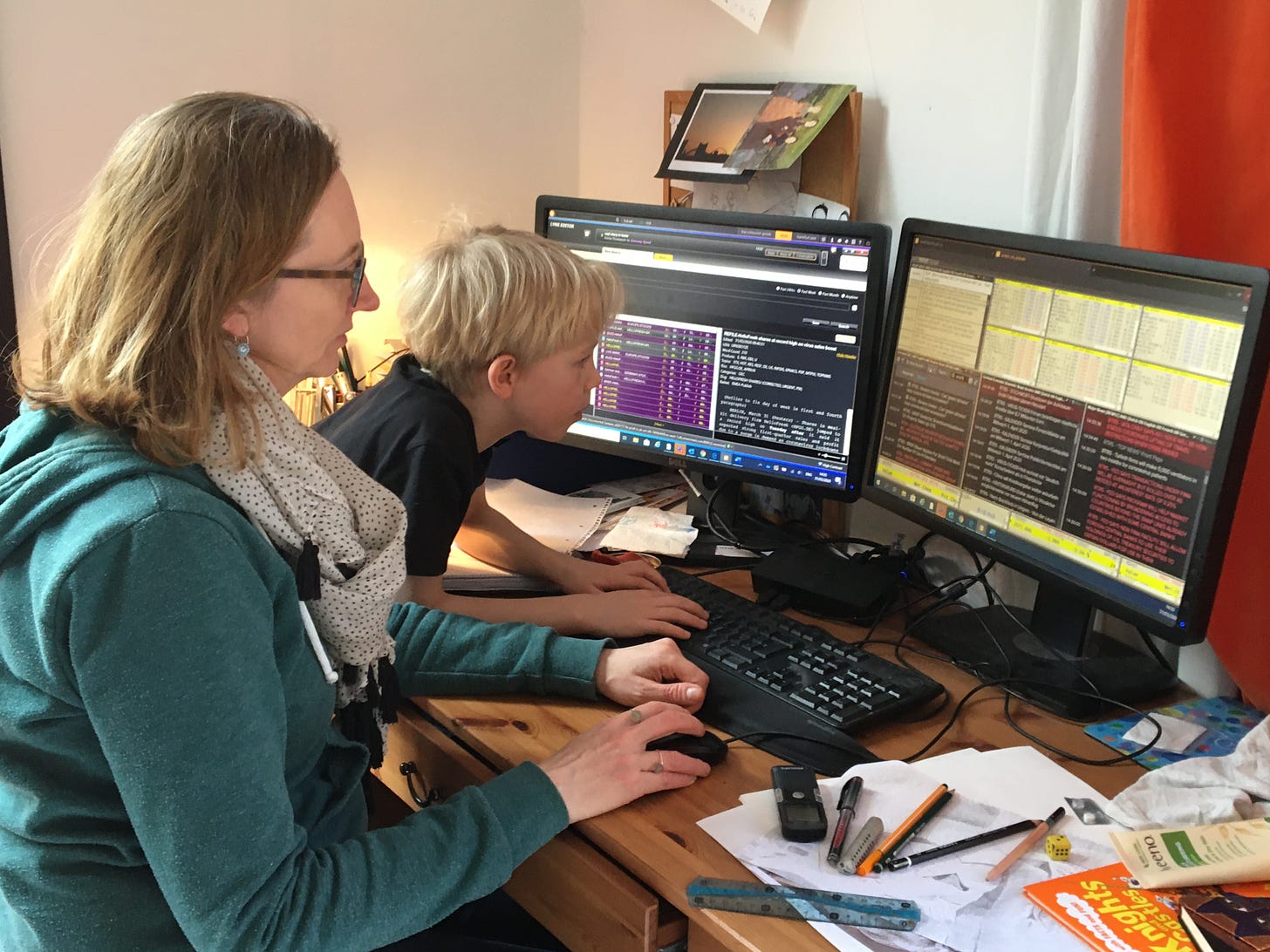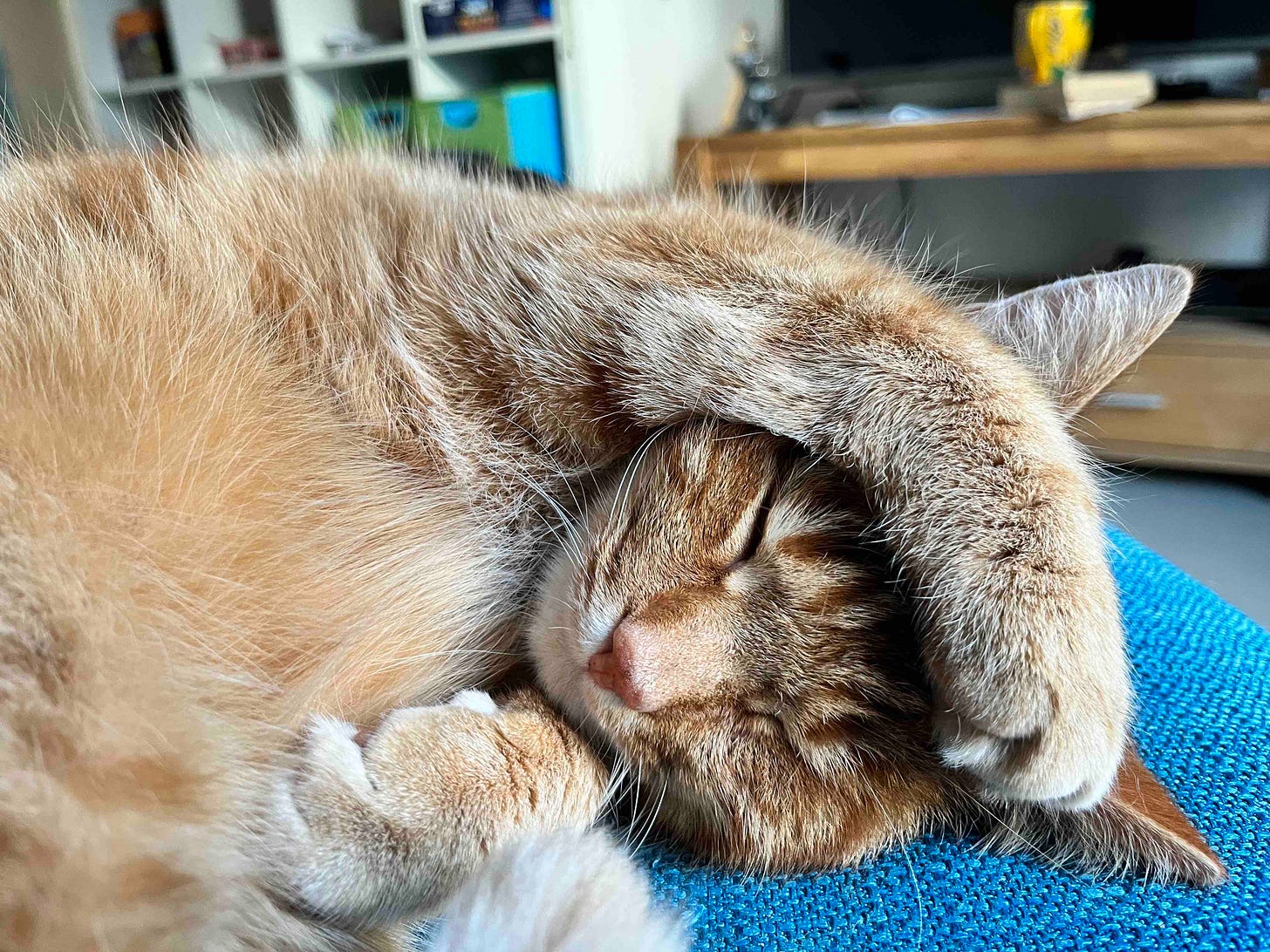What career advice would you give to a young version of yourself?
A few years ago, the teenage daughter of friends came into the Reuters newsroom to do a day of work experience. She got a tour of the TV department and spent several hours sitting next to me, watching as I did some research online and made a few phone calls before starting to write an article. At the end of the day, I asked her what she thought of the job. She was blunt: “I can’t believe you just spend the whole day sitting at a computer. I don’t think this is for me.” In the end, she decided to study international law and I hope she will be rewarded by more social contact than she found in modern news agency journalism.
Of course, many jobs nowadays involve hours in front of screens. But her observation brought home to me how sedentary and isolated my career had become. That became even more pronounced during the pandemic when the only interaction with colleagues from my bedroom home office was over Teams calls, wearing a too-tight headset all day like in a call centre. It was often an unfortunate combination of stress and tedium (not to mention constant interruptions from the kids).
I recently met an older student who is considering a career in journalism. He contacted me because he had read a blog I wrote on the burnout which I suffered in 2014 and wanted to know whether the profession was as stressful as I made it out to be. It made me realise I need to set the record straight. While years of accumulated stress wasn’t great for my health or my family, I thrive on the adrenaline you can get from a big breaking news story. In fact, I now believe we have gone too far in demonising stress.
Make friends with your stress
My revelation came when I heard this TED talk by Kelly McGonigal. Research shows that stress itself is not necessarily bad for you. However, experiencing stress while BELIEVING that it is bad for you is what causes problems. And there is a whole wellbeing industry – from mindfulness apps to yoga schools – that keep propagating this idea. I have been guilty of this too. As a coordinator of a peer network at Reuters set up to support colleagues suffering from trauma and stress, I also promoted mindfulness, art classes and yoga as antidotes.
Now looking back, colleagues who asked for help were rarely complaining about “stress” per se – like most people lucky enough to do a job that is a vocation, they generally get a buzz from the work that they do. There is lots of new research on this topic. Studies have shown that students who are told to see their anxiety before an exam as potentially helpful to their performance score higher in the test. “If you see the racing heartbeat as a sign of energy for an important and potentially rewarding event, you reaffirm the idea that you have everything you need to thrive,” writes David Robson in The Expectation Effect. Perhaps even more surprisingly, teenagers taught mindfulness techniques to help them deal with anxiety are actually more likely to show signs of depression, perhaps because they start believing that they must be anxious if they need to learn breathing exercises. This raises all sorts of interesting questions for the constructive news project I am working on in part to help address the rise in mental health problems among the young.
When we complain about stress, what often ails us is something underlying the stress: bullying by a manager, lack of control over when and where we work, long hours, inability to switch off. But doing a job where we are under pressure to perform can be quite thrilling, like being an athlete. Tennis player Billy Jean King says she learned to appreciate pressure as a privilege that she should harness to help her win matches: “I began to see the match as something I got to do instead of something I had to do.”
Underchallenged at work, overchallenged at home
If I am honest with myself, it was really two other things that led to my burnout: suppressed rage that I couldn’t continue to do the bureau chief job I loved and be an involved parent. Rage at Reuters, rage at my partner, and rage at the patriarchy. But perhaps just as important was the removal of the kind of stress that I had thrived on. The job I took in Berlin was focused on writing and researching longer articles rather than being at the cutting edge of breaking news. I had to generate my own stress to keep motivated and, to be honest, I was rather drained from sleepless nights and years of intense work and intense parenting. Once the external pressure of running a team fell away, I found it hard to keep my spirits up in the dark Berlin winter. It was easier to say I was experiencing a burnout than to admit to a deeper crisis.
Psychotherapist Josh Cohen makes a good point: “sufferers of this condition of exhausted busyness will often refer to feeling ‘burned out’, a term that locates their malaise in the external pressures of working life rather than in the turbulences of the inner world, thus circumventing the stigma of depression.” It took time but I recovered from my burnout thanks to the help of a therapist, friends, exercise, and cats. I cut my hours at work to have more time for my family, but that led to a new problem: I felt underchallenged at work, just as I was often overchallenged at home by my sons’ intense sibling rivalry. Perhaps it was a mistake to buy them replica swords at the start of the pandemic.
Should work be meaningful?
In the end, it was “boreout” not burnout that pushed me to seek a new challenge. In my last few years at Reuters, I got involved in diversity, mental health and mentoring initiatives that fired me up, but the core of my job was the same it had been 20 years ago. It turns out that “boreout” is a common trend in many industries. Ruth Stock-Homburg, a professor of management and human resources management at the Technical University of Darmstadt, Germany told the BBC the condition has three key components: being bored, lacking personal development, and having a crisis of “meaning”.
The question of meaning came to a head for me when Russia invaded Ukraine. Writing about the war and the fallout was important but I wanted to be doing something more active, so I went to Berlin’s main station to volunteer to help the thousands of mostly women and children pouring out of trains looking for refuge. I handed out soft toys, miniature cars, and colouring books that my sons no longer used, although we were advised to remove toy fighter planes for fear of further traumatising the refugees.
The more I think about it, the more I have come to question the expectation of finding meaning in our work. Those of us lucky enough to have a career like journalism, medicine or teaching might enjoy many meaningful moments. But even these jobs involve repetitive, boring tasks, as well as office politics, annoying colleagues, and micro-managing bosses. In our secular age, we expect too much from work and employers are perpetuating this fallacy: one leading German sports brand promises new recruits the chance to “change the world” and “challenge the status quo”. Of course at the end of the day, they are just selling shoes.
If meaning is elusive, work should at least offer learning and development
Relationship guru Esther Perel notes that the decline of religion has led many of us to expect our employers, and/or our partners, to fill that existential gap. “People keep thinking that they should find passion, purpose, mission, meaning in their work,” she told CNBC, adding: “Not everybody’s job is going to be the most interesting part of their life.”
Instead of expecting passion in our work, Perel recommends looking for a job that teaches you skills, something you can grow in and something that will support you financially, and the people that you support.
Learning new skills is what I have enjoyed the most since taking a new direction: I have trained as a leadership coach, taken adult education classes in visualisation and training techniques, and done a journalism entrepreneurship course. It has been thrilling to experiment and meet people from different generations and backgrounds.
So, here are my lessons for young people looking to enter journalism, or any profession for that matter:
Don’t be too afraid of stress: learn to channel it if possible.
Don’t be afraid of boredom either: it can spur you to creativity (more on that topic another time…)
Set boundaries around the amount of time you spend on screens.
Keep learning.
Accept that your job will not necessarily lead you to Nirvana.
Cultivate other sources of meaning, like volunteering, friendship and physical activity.
What I am reading this month:
The Biggest Bluff - Maria Konnikova
Small Things Like These - Claire Keegan
The Expectation Effect - David Robson









